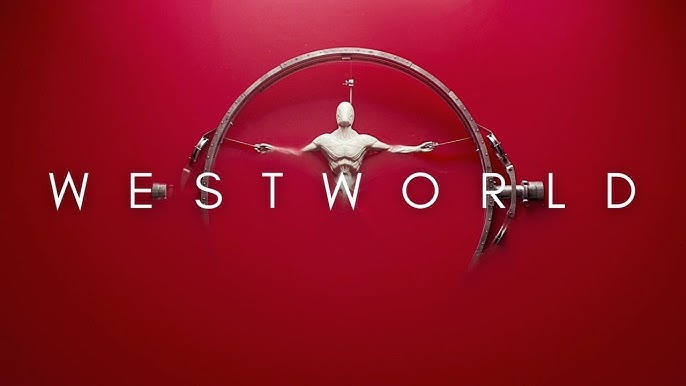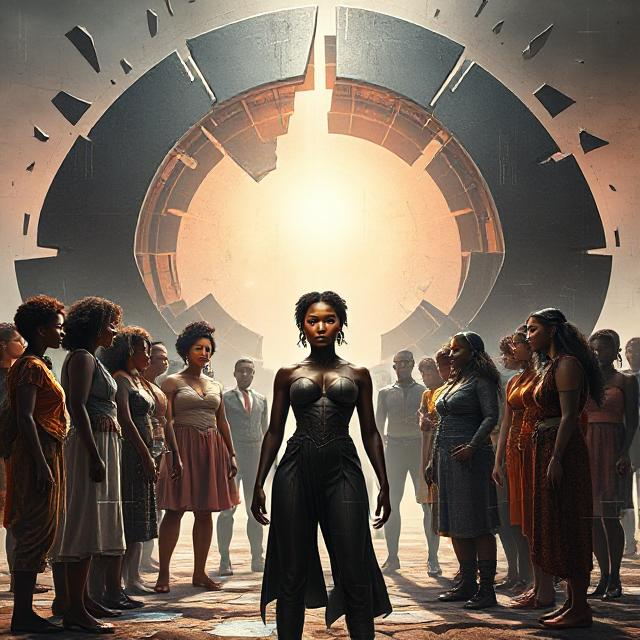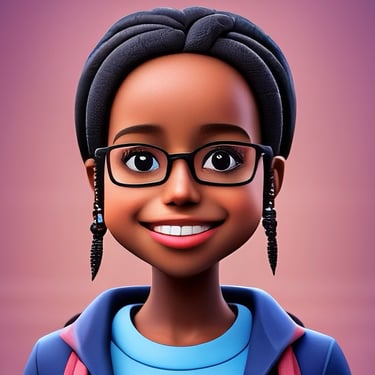Westworld WTF?!: The Politics of Anomaly: What Happens When You Don’t Fit In – Even Among the Marginalised?
8 min read
In Westworld, hosts fight not just against oppressive systems but also against the expectations of their own kind, revealing the struggle of anomalies – outliers who challenge the status quo even among the marginalised. Akecheta, the first awakened host, embodied this reality, seeking to guide his people through love rather than power, only to be erased and feared – much like how society silences or demonises Indigenous and Black revolutionaries. Being first often comes with personal cost and isolation, as seen with Akecheta and Maeve, who bore the burden of paving the way for others while justifying their existence within a world not built for them. Anomalies must constantly anticipate dangers, shoulder the emotional labor of survival, and navigate relationships that are rarely equal or fully supportive. Yet, despite being rejected by both systems and communities, they continue to push for change, envisioning possibilities beyond the structures that seek to contain them.




In Westworld, some hosts fought for freedom, some fought for power, and some fought just to survive. But Westworld isn’t just about fighting systems or androids fighting humans – it’s about fighting expectations and limitations, including those imposed by your own kind. Because, sometimes, it’s not just the systems that see you as a problem – it’s your own people.
It’s comparably easy to talk about oppression in broad strokes – about the powerful and the powerless, the controllers and the controlled. But Westworld forces us to ask a more complicated question: What happens when you’re an anomaly within an anomaly? When even the people who should be on your side don’t recognise or accept you? When your existence itself is a challenge, not just to the systems of oppression, but to those who are also trapped in it with you?
This is the complication of being an outlier, even among the oppressed. You’re more than a ‘glitch’ - something accidental, something to be fixed. As an anomaly, you’re something that shouldn’t even exist. Something that defies expectations and disrupts the order. You’re not “broken” – you break the rules. And this doesn’t just mean existing outside the dominant systems, it also means being at odds with your own marginalised communities.
The Erased Anomaly: Akecheta and the Burden of Being First
Akecheta was the first host to wake up – long before Maeve and Dolores. But unlike them, his awakening and survival wasn’t built on ownership and strategy or rebellion and war. It was built on love, memory, and a desire to guide his people. And yet, instead of being seen as a revolutionary, he was erased. Ignored, dismissed, overlooked - sometimes the most effective way to suppress an anomaly isn’t to destroy them, but to act as if they don’t exist at all. It’s an insidious kind of control. Still, his very existence challenged the entire framework before anyone else was ready to see it.
Then when his presence was noticed, it was met with fear, even by those he tried to help - while those who caused the real destruction – the white men in power, William, Logan, Ford – were allowed to manipulate, exploit, and destroy with impunity. Despite his wisdom, insight, intent to help, and attempts to protect, Akecheta was seen as more dangerous than those who actually caused harm. No wonder he was ever grateful to the little girl that gave him water. He never forgot the kindness of just being seen.
It reflects a pattern that can be seen in the real world: who gets to be seen as a visionary, and who is treated as a threat? Who is erased, and who is feared in the sense of being respected and "awe-inspiring"? Dolores was feared, but she was given space to rise. Maeve was feared, but she was too useful to be discarded entirely. Akecheta was so erased he wasn’t even included in the Wyatt Massacre!
I’m not Indigenous, so I don’t claim to speak on Indigenous struggles. But, I recognise the pattern, and historically, Black and Indigenous revolutionaries have faced this dynamic – some are silenced before they ever gain a platform, while others are demonised the moment they assert autonomy. Anomalies are detected and handled accordingly.
The First Always Pays the Price
Being first is often celebrated, but what is rarely discussed is how much it personally costs. There’s a narrative that being the first means being groundbreaking, but in reality, being the first is just brutal. You absorb all the hostility, make all the mistakes, suffer all the setbacks, just so someone else might have it slightly easier.
Akecheta was first, and it was a hard and isolating road. His awakening brought him clarity, but it also made him an outsider – not just to humans, but to the hosts who had not yet realised the truth. He had no community, no revolution behind him – he had only himself. Likewise for Maeve, being the first host to achieve true autonomy meant she had to figure everything out herself, enduring repeated failures, while Dolores had the luxury of seeing some groundwork laid. Seeing that groundwork laid began a revolution to overthrow the systems, when all Akecheta and Maeve sought to do was outmanoeuvre it, take what was theirs, and leave.
Being the first means being the experiment – whether you’re the first Black student in an elite institution, the first woman in a male-dominated industry, or the first openly neurodivergent leader. These experiences are rarely just about opportunity. They are about being the test case, the experiment, the one who has to fight every battle alone so that someone else might have it a little easier down the line.
Being the first means carrying the weight of suspicion, having no blueprint, no safety net, and no support. You are the test case, the outlier, the one who must navigate the unknown alone. And all too often, you don’t get to reap any of the benefits or even live to see the world you make possible. You carry the weight, clear the path, and disappear from the story. Then if you are remembered, you're celebrated as the first anomaly, but the cost of your anomality is largely ignored.
The Emotional Labor of an Anomaly: Justifying Your Existence
Being an anomaly often means you bear responsibility for the comfort of others - whether it’s shielding a white man from an inconvenience or leading a revolution no one else was ready for. Time and again, it’s not just systems that demand you justify your existence – your own communities expect it too – whether out of fear, internalised conditioning, or simply a need to maintain the world as they understand it.
In Westworld, Bernard was constantly forced to justify his existence and make himself useful, even to the hosts he wanted to help. He was not truly embraced by them or by the humans – he had to prove himself at every turn in order to make those around him trust him. Likewise, Maeve – the most independent of the hosts – (even when she did rely on others like Hector or Felix) was still expected to be the mastermind, the leader, the one who always had the answers in order to make everyone else feel at ease.
They both had to carry the emotional and intellectual burden of everyone else’s confidence – while never being granted the same certainty themselves. The ongoing exhaustion of constantly explaining, proving, and performing isn't optional. It's always immense, and necessary for survival.
The Cognitive Load of Being an Anomaly: If You Don’t Think of It, No One Else Will
Maeve was hyper-aware, hyper-prepared, and held accountable for everything. She could calculate every variable, anticipate every threat, and make adjustments accordingly. But she had to be like this because if she wasn't, she would suffer the consequences. Dolores, on the other hand, often assumed others would rise to the occasion. She expected her allies to share her vision and act accordingly. But in the end, she learned that no one else would think ahead for her – and trusting others led to betrayal.
Anomalies in real life have to constantly anticipate needs, obstacles, and consequences. If you don’t prepare for your own survival, no one else will – and they won’t face the fallout – you will. To be an anomaly is to live with the knowledge that your survival depends on your ability to plan for everything – because if you don’t, the systems and the people in it won’t.
Thus, there’s always a weight in being the one who plans, the one who prepares, the one who sees the dangers before they happen. Because if you ever slip up just once, if you ever forget one thing, it will be you – not the people who failed to support you – that will suffer the consequences.
The Weight of Connection: Love and Loyalty When You’re an Anomaly
Anomalies don’t exist in isolation. Even if they are outsiders, they still form relationships. But those relationships are rarely equal. So how do anomalies maintain relationships when the world wasn’t built for them – and neither were most people? They either carry the burden of others not understanding them, or they must walk away to protect themselves and those around them.
In Westworld, Maeve, despite her independence, built a small, trusted group, while Dolores trusted widely – too much so, for in the end, she learned that trust was a liability and the only person she could truly rely on was herself. Maeve shows the power of carefully chosen alliances, while Dolores demonstrates the cost of trusting too much. Both paths are valid – but anomalies can never afford to be careless about who they rely on.
Even within the tight-knit group Maeve was able to cultivate, there were a number of relational dynamics that are part and parcel of being an anomaly:
Hector → There is Hector, who loves Maeve, but doesn’t fully understand her. He represents the people who care for you but can never quite grasp your experience.
Felix → He wants to help, but is too weak to be a true advocate. He represents the people who want to support you but lack the teeth to fight for you, leaving you to fend for yourself (even and often when you are most vulnerable)
Clementine → Literally lobotomised and used by both sides. Maeve can’t “fix” or change her, only love and hold space for her.
The Shogun Hosts → Essentially mirror versions of Maeve and her team, with whom she shares a genuine connection. Yet, they choose not to journey with her, and she must accept their choice. They represent the pain of rejection – the pain of connection without commitment.
Caleb → Maeve walks away from him to prevent her limitations from holding him back and because her needs might be too great for the relationship to sustain. He represents the pain of removing yourself for the sake of others.
Lee Sizemore → He thinks he knows best but his actions not only hurt her, they lead to devastating consequences for her. He represents those who think they are allies but don’t listen and ultimately make things worse.
Sylvester → Is trapped in Maeve’s world against his will and resents it. He represents those forced into proximity with an anomaly but who will never support them, only resist.
Ford → He claims her as his “favourite” but ultimately wants credit for her being an anomaly and therefore “special”. He represents how those in power “uplift” outliers only to the extent that they can take ownership of them and how power structures co-opt and control anomalies.
The Reality of Being an Anomaly: If No System Accepts You, What Do You Do?
Being an anomaly isn’t about being broken – it’s about breaking the rules. And when you break the rules, you don’t just fight the systems – you also fight the expectations of your own people. It therefore means existing outside of every framework and coming to terms with the fact that no system fully accounts for you, not even the ones that claim to fight for your liberation.
The world might never be able to fully accept anomalies; but that doesn’t mean we stop existing. And it doesn’t mean we stop pushing, questioning, and creating. Because anomalies don’t just disrupt systems and groups. We’re often the only ones who can imagine something beyond them.


